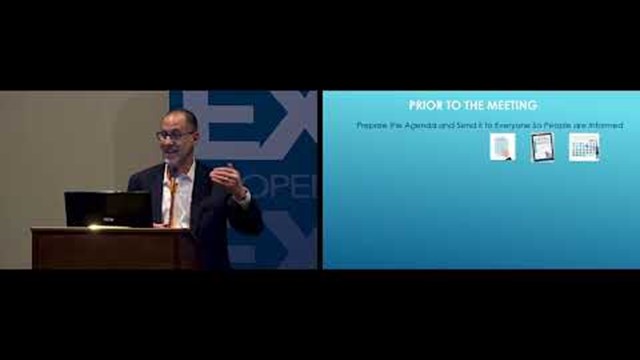Q. Is it illegal for a cooperative board to decide not to hold an annual shareholder meeting? If a cooperative board does not meet, what rights is a shareholder entitled to?
—Shareholder Waiting for the Meeting
A. Margery N. Weinstein, Esq., partner at Schwartz Sladkus Reich Greenberg Atlas LLP in New York, explains that “most residential cooperatives are formed under New York State’s Business Corporation Law (the BCL). Co-op board operations and shareholders’ rights are governed by the BCL, as well as by each cooperative’s particular governing documents, i.e., its certificate of incorporation, proprietary lease, and bylaws. Both the BCL and (typically) the bylaws provide guidance on the issues of how often a shareholders meeting must occur, where that meeting shall occur, and what a shareholder may do in the event the cooperative corporation’s board fails to meet with its shareholders.
“The annual shareholders meeting is a crucial time for the running of a cooperative: neighbors meet each other and air their grievances, major projects are explained, and shareholders have an opportunity to learn about the financial and physical wellbeing of their building and to question their board representatives. In addition, and most importantly, voting is held for the election of a new board and, occasionally, for a matter requiring shareholder approval, such as the adoption of a ‘flip tax’ or revisions to the proprietary lease or bylaws.
“Pursuant to Sections 602 and 603 of the BCL, a meeting of shareholders is required to be held no later than 13 months after the last annual meeting, or no later than 13 months from the formation of the corporation in instances where no meeting has been previously held. In many instances, a cooperative’s governing documents also require annual meetings by including within the bylaws a specific calendar date for holding the annual meeting and, when such a provision is included in the bylaws, the annual meeting must occur within one month after the designated date. As of 2021, shareholder meetings for cooperatives—and as of 2022, unit owner meetings for condominiums—may be conducted ‘virtually’ by electronic means unless the bylaws of the entity explicitly prohibit virtual meetings; this recent legislation makes it less burdensome for a board to coordinate the holding of such meetings than when a physical location was an absolute necessity.
“The failure of a board to call for and hold an annual meeting may be indicative of poor, and possibly improper, board governance of the co-op. Failure of the board to hold an annual meeting may indicate any number of possible issues: Is there an entrenched board that does not want to hand over its powers? Is the board purposefully delaying discussion of a controversial topic, such as a large and costly capital project? By its refusal to hold a meeting, is the board preventing a shareholder vote on a new and highly debated policy, such as ‘no-smoking’ or ‘no pets’? The annual meeting offers shareholders an opportunity, in an open and transparent forum, to confirm whether their elected board members are effectively performing their fiduciary duties in governing the cooperative. For obvious reasons, shareholders may have concerns if the annual meeting is not held as required.
“If a cooperative’s board does not hold an annual shareholders meeting within the requisite timeframe noted above, or if a meeting is held but there is a failure to elect a sufficient number of directors to conduct the cooperative’s business, a shareholder has a number of options. The first option is for the shareholder to demand a special shareholders meeting. Under the BCL, a special meeting for the purpose of electing new board members may be demanded, in writing, by as few as 10% of the shareholders entitled to vote. The shareholders must specify the date and month of the special meeting, which under the BCL must be between 60 and 90 days from the date of the written demand. If the co-op’s secretary fails to promptly notify all shareholders of the special meeting within 5 business days after receipt of the shareholders’ written demand, then any shareholder signing the written demand may give that notice to the shareholders. Most bylaws also have provisions empowering shareholders to call special meetings. If a shareholder wishes to pursue the avenue of calling a special meeting, it is strongly recommended that he or she consult with an attorney who can advise on the processes of calling a special meeting and, importantly, on ensuring a fair election at that meeting, free of voter and proxy fraud.
“Alternatively, in the event timely annual meetings are not held, a shareholder may resort to litigation in order to enforce the BCL and the annual meeting requirements set forth in the cooperative’s particular bylaws. A shareholder may bring a court proceeding seeking an injunction prohibiting his or her board from violating the applicable annual meeting provisions of the BCL or seeking to compel the board to fulfill its obligations under the bylaws to hold annual meetings and conduct elections. Of course, not only is litigation both time-consuming and costly, making the foregoing options impractical for most shareholders except in dire circumstances, but also, resorting to the courts is not a certain win for a shareholder. The business judgment rule creates a presumption of the validity of a decision of a board so long as the decision was made in good faith and in furtherance of the corporate purposes. See Levandusky v. One Fifth Ave. Apt. Corp., 75 N.Y.2d 530 (1990) (business judgment rule is the proper standard of review when evaluating decisions made by residential cooperative corporations). In the event a board intentionally postpones having an annual shareholders meeting beyond the period required by the bylaws, New York case law suggests that board members may be entitled to presumptions and protections afforded by the business judgment rule. See Park Royal Owners, Inc. v. Glasgow, 19 A.D.3D 246 (1st Dep’t 2005) (question of fact as to whether board members of a residential corporation acted within their scope of authority as a board when postponing an annual shareholders meeting). Thus, as long as the board is abiding by its governing documents in good faith and is relying upon professionals to advise business decision-making, a court (including those in the 2nd Department, where the questioner’s cooperative is located) may look to the business judgment rule in upholding the board’s action or inaction with respect to holding timely annual meetings.
“Of note, unlike co-ops, condominiums in the State of New York are not organized as traditional corporations and, as such, are not governed by the BCL. Nonetheless, condominium unit owners are still protected by the State’s Real Property Law and the condominium’s particular bylaws, which typically establish requirements for annual unit owner meetings and special meetings.”










Leave a Comment